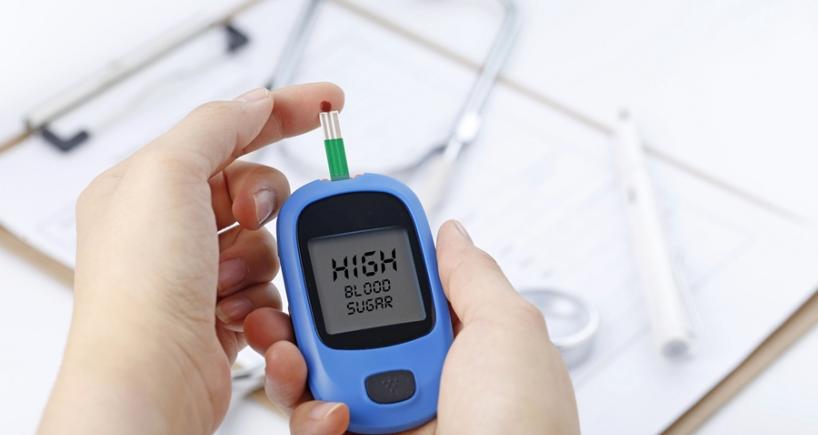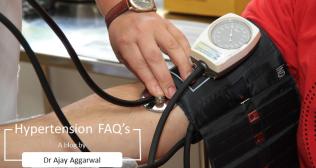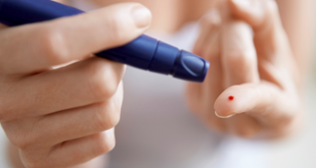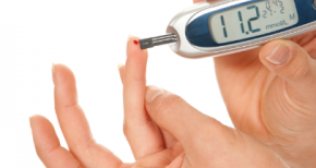
What are the Different Types of Diabetes and their Treatment
Introduction
Diabetes is group of metabolic disorders characterized by hyperglycaemia, resulting from defects in the secretion of insulin, its action, or both. The condition is said to be prevalent issue for many people, affecting millions of both young and old people worldwide. With continuous medical care as well as multifactorial risk-reduction strategies beyond glycaemic control and patient self-management education and support help in preventing acute complications and reducing the risk of long-term complications.
Importance of Understanding Different Types
It is very important to acquire knowledge about different kinds of diabetes because they are equipped with unique causes, risk factors, and methods of managing. It is important to have regular check-ups for early detection some of the general diagnostic test to confirm diabetes include HBA1C, fasting blood sugar, post-prandial test.
Let's explore the primary types of diabetes and their treatments in detail.
Type 1 Diabetes
Cause
Type 1 diabetes is a kind of autoimmune condition. In this type the immune system of the body targets and kills the beta cells present in pancreas that produce insulin. This destruction results in little to no insulin production.
Onset
Type 1 diabetes often develops rapidly, particularly in children and young adults. Symptoms can appear suddenly characterised by increased thirst, frequent urination, unexplained weight loss, and fatigue.
Treatment
People with type 1 diabetes require lifelong insulin injections to survive. Insulin therapy is essential to manage blood sugar levels effectively.
Lifestyle Changes
Consistent dietary adjustments include eating a balanced diet, physical exercise and regular monitoring of blood sugar levels are crucial in maintaining a healthy lifestyle if diagnosed with diabetes.
Type 2 Diabetes
Cause
Type 2 diabetes begins with insulin resistance, where the body cannot use insulin efficiently, leading to elevated blood sugar levels. Over time, the pancreas cannot produce enough insulin to maintain normal blood sugar levels.
Risk Factors
Genes: A family history of diabetes increases the risk of developing type 2 diabetes.
Lifestyle: Sedentary habits, obesity, and poor dietary choices profoundly contribute to the development of type 2 diabetes. Effective management of type 2 diabetes often involves weight management, regular exercise, and balanced nutrition along with oral hypoglycaemic agents
Common symptoms include excessive thirst, frequent urination, fatigue, slow-healing wounds, and blurry vision. These symptoms often develop gradually and may go unnoticed for years.
Treatment
Medications: Oral antidiabetic drugs like metformin are commonly prescribed to help manage blood sugar levels. In some cases, other medications may be needed to target different aspects of diabetes management.
Insulin (if needed): Some individuals with type 2 diabetes may eventually require insulin therapy to maintain blood sugar control
Gestational Diabetes
This kind of diabetes occurs during pregnancy when insulin-blocking hormones produced by the placenta act by elevating blood sugar levels. This condition is resolved post-delivery however, the women is likely to develop type II diabetes in the later life.
Risk Factors
Preexisting Prediabetes: Women with preexisting prediabetes are at higher risk along with family history
Treatment
The healthcare professional may suggest insulin therapy as a standalone treatment option for pregnant women to keep their blood sugar levels under control.
Dietary Control: Monitoring carbohydrate intake and eating a balanced diet are essential to managing blood sugar levels during pregnancy.
Physical Activity: Safe exercise during pregnancy can help manage blood sugar levels.
Regular blood glucose monitoring is essential to ensure the levels remain within the target range.
Diabetes Insipidus
Diabetes insipidus is a rare type characterized by excessive thirst and frequent urination producing 20 litre of urine in a day. However, this condition is not related to either type 1 or type II. The general test used to confirm diabetes insipidus include water deprivation test, urine test, blood tests.
Diabetes management is a team effort comprising patients, medical professionals, and well-informed lifestyle decisions. We give ourselves the capacity to lead healthier lives by being aware of the subtle differences between each type. Neglecting it may cause long-term issues impacting on physiological systems. Heart failure, diabetes retinopathy, diabetic neuropathy, foot issues, diabetic nephropathy, increased risk of osteoporosis, and weakened immune system are some of the complications of untreated diabetes. Therefore, timely diagnosis, right medications and lifestyle modifications are important components to prevent further complications of the condition.
Popular Searches :
Hospitals: Cancer Hospital in Delhi | Best Heart Hospital in Delhi | Hospital in Amritsar | Hospital in Ludhiana | Hospitals in Mohali | Hospital in Faridabad | Hospitals in Gurgaon | Best Hospital in Jaipur | Hospitals in Greater Noida | Hospitals in Noida | Best Kidney Hospital in Kolkata | Best Hospital in Kolkata | Hospitals in Rajajinagar Bangalore | Hospitals in Richmond Road Bangalore | Hospitals in Nagarbhavi Bangalore | Hospital in Kalyan West | Hospitals in Mulund | Best Hospital in India | | Cardiology Hospital in India | Best Cancer Hospital in India | Best Cardiology Hospital in India | Best Oncology Hospital In India | Best Cancer Hospital in Delhi | Best Liver Transplant Hospital in India
Doctors: Dr. Rana Patir | Dr. Rajesh Benny | Dr. Rahul Bhargava | Dr. Jayant Arora | Dr. Anoop Misra | Dr. Manu Tiwari | Dr. Praveer Agarwal | Dr. Arup Ratan Dutta | Dr. Meenakshi Ahuja | Dr. Anoop Jhurani | Dr. Shivaji Basu | Dr. Subhash Jangid | Dr. Atul Mathur | Dr. Gurinder Bedi | Dr. Monika Wadhawan | Dr. Debasis Datta | Dr. Shrinivas Narayan | Dr. Praveen Gupta | Dr. Nitin Jha | Dr. Raghu Nagaraj | Dr. Ashok Seth | Dr. Sandeep Vaishya | Dr. Atul Mishra | Dr. Z S Meharwal | Dr. Ajay Bhalla | Dr. Atul Kumar Mittal | Dr. Arvind Kumar Khurana | Dr. Narayan Hulse | Dr. Samir Parikh | Dr. Amit Javed | Dr. Narayan Banerjee | Dr. Bimlesh Dhar Pandey | Dr. Arghya Chattopadhyay | Dr. G.R. Vijay Kumar | Dr Ashok Gupta | Dr. Gourdas Choudhuri | Dr. Sushrut Singh | Dr. N.C. Krishnamani | Dr. Atampreet Singh | Dr. Vivek Jawali | Dr. Sanjeev Gulati | Dr. Amite Pankaj Aggarwal | Dr. Ajay Kaul | Dr. Sunita Varma | Dr. Manoj Kumar Goel | Dr. R Muralidharan | Dr. Sushmita Roychowdhury | Dr. T.S. MAHANT | Dr. UDIPTA RAY | Dr. Aparna Jaswal | Dr. Ravul Jindal | Dr. Savyasachi Saxena | Dr. Ajay Kumar Kriplani | Dr. Nitesh Rohatgi | Dr. Anupam Jindal |
Specialties: Heart Lung Transplant | Orthopedic | Cardiology Interventional | Obstetrics & Gynaecology | Onco Radiation | Neurosurgery | Interventional Cardiology | Gastroenterologist in Jaipur | Neuro Physician | Gynecologist in Kolkata | Best Neurologist in India | Liver Transfer |



















